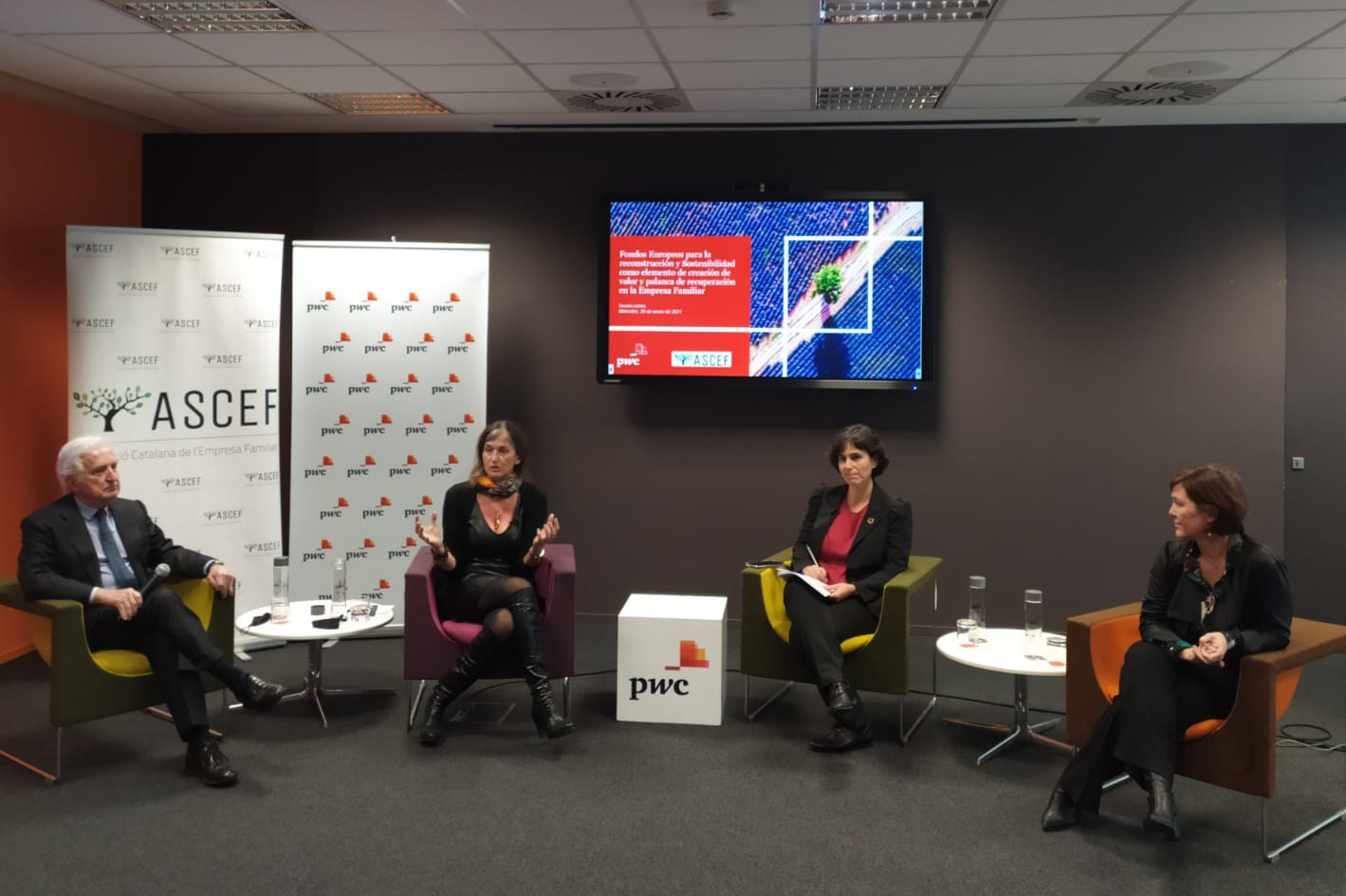“Family businesses are better positioned to speed up the change and leverage on all opportunities”

The Catalonian Family Business Association (ASCEF, acronym in Spanish) together with the PwC organized an online session called “Europeans Funds for Reconstruction and Sustainability as an Element for Value Creation and Recovery Leverage in Family Business”, which explore the topic of aids and financing alternatives involved in the European Recovery Plan (Next Generation EU), its benefits and implications, and how sustainability may help in identifying opportunities.
Anna Merino, PwC Strategy & Economics Director, and Marga de Roselló, PwC Sustainability and Climate Change Director, provided insights for the angles that conform sustainability and the different possibilities that the Europeans Funds for Reconstruction may offer for family businesses. An European Union Investment that will hinged on three pillars: Ecological Transition, Digital Transition and Reindustrialization.
“Family Businesses start from a privileged situation to leverage on opportunities, because they share four priorities: networking, continuity assurance, which entails a long-term vision, faster decision making and community building, with greater relations with workers and regions“, stated Marga Roselló. “There will be no change without the family business“, she stressed.
Meanwhile, Anna Merino explained that “we do not start from scratch, since the European Funds have expedited the changes already planned for the next decade. We now face a complex economic situation, but with a need to solve the problem before it gets bigger.” She reminded that Spain will be one of the most favored countries (it will received €140 billion), but in compensation for that “the EU requests that the funds make it to the whole business fabric, to all industries.”
“All projects should prove their impact on the region’s economy“, Merino added. “Businesses have now the opportunity to plan and think about latent projects within the business, which may also bring a change in business culture in the ecological transition or digitalization, for example.”
The session also included the participation of Mireira Cammany, Joint Director of EPI INDUSTRIES family of companies, who shared her experience in her company’s path to sustainability. Cammany reminded that the “2030 Agenda helps arrange actions and priorities.” She also emphasized that “sustainability is addictive; if we integrate it into the business, we are leaving a legacy of great impact and feasibility for the coming generations.”